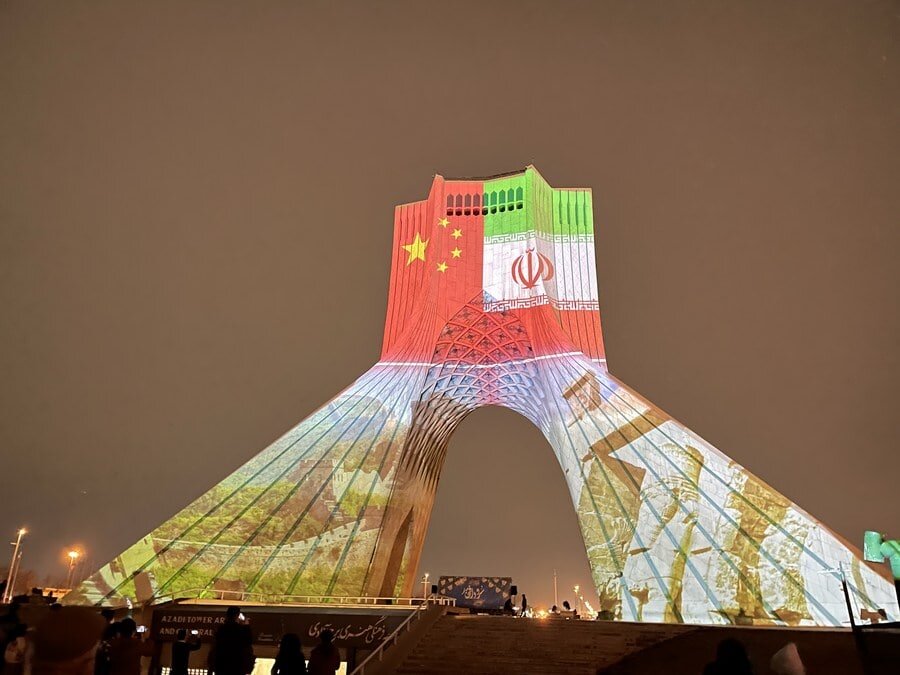TEHRAN – Despite growing uncertainties over nuclear talks with the West, Iran has moved to develop its foreign relations with many countries in the world and upgrade them to a strategic level in some cases.
Developing Iran’s foreign relations is no longer contingent on the 2015 nuclear deal, officially known as the Joint Comprehensive Plan of Action (JCPOA). This is what can be inferred from Iran’s diplomatic moves over the course of the Ebrahim Raisi presidency. Upon assuming office in August 2021, Raisi moved to strengthen Iran’s ties with neighboring counties and non-Western world powers.
In the early weeks of his presidency, Ayatollah Raisi succeeded to set the stage for Iran to become a full member of the Shanghai Cooperation Organization (SCO). The process of granting Iran a full membership status began last year, but it will be finalized in the next SCO summit due to be held in Samarkand in mid-September. The Uzbek acting foreign minister, Vladimir Norov, has recently said that the organization is preparing the necessary documents that Iran needs to sign to become a full member. “In Samarkand, a memorandum on Iran's obligations as an SCO member will be signed,” Norov said.
In addition to the SCO, Iran is also seeking to join the group of emerging economies that is called BRICS. Iranian Foreign Minister Hossein Amir Abdollahian has said that Iran is one of the first countries that is going to become a member of BRICS +.
BRICS includes Brazil, Russia, India, China, and South Africa.
In parallel with its efforts to join prestigious international institutions, the Raisi administration also mounted an extensive diplomatic push to patch up ties with some Arab counties in the West Asia region. President Raisi and Amir Abdollahian have visited certain Arab countries. Now, these efforts appear to be bearing fruits as the United Arab Emirates and Kuwait have decided to dispatch ambassadors to Iran soon. As regards relations with Saudi Arabia, a meeting is being arranged between the foreign ministers of Iran and Saudi Arabia in Baghdad.
Also, Iran has worked with China and Russia toward signing strategic partnerships. On Friday afternoon, President Xi Jinping of China spoke with President Raisi for an hour about a range of issues, including China’s desire to strengthen strategic partnership with Iran.
“China views its relations with Iran from a strategic perspective and stands ready to work with Iran to push for new progress in the China-Iran comprehensive strategic partnership,” President Xi said in the conversation, according to Xinhua.
Emphasizing the strategic importance of China-Iran relations and his country's efforts to strengthen the key strategic and security cooperation between the two countries, especially in commercial, economic, infrastructure and energy fields, the Chinese president stated, “The implementation of the 25-year comprehensive cooperation document between the two countries is a big step in this direction, and on this basis, I am issuing the necessary orders for the development of all-round strategic relations with Iran, including in the economic field.”
Raisi and Xi also agreed to accelerate the implementation process of the 25-year comprehensive cooperation plan by proposing cooperation development initiatives and expressing satisfaction with the development of relations and leap in commercial exchanges over the past one year, according to a readout of the call put out by the Iranian presidency.
All this took place at a time when the situation around the 2015 nuclear deal is vague and unclear. However, Iran said it will not tie its foreign policy to the fate of the JCPOA.
Nasser Kanaani, the spokesman for the Iranian foreign ministry, recently said Iran’s neighborly policy is not contingent on the nuclear deal.
“False dichotomy between JCPOA (of which Iran, unlike US, remains a party) & good ties between Iran & its neighbors, inc. Russia, doesn't hide the fact that indecision of the unfaithful US is the main hurdle for a deal,” Kanaani said on Twitter. “Our neighborly policy is not contingent on JCPOA or US permission.”


No comments:
Post a Comment